This site uses cookies
We use necessary cookies to make our sites work. We'd also like to set additional cookies to analyse how our sites are performing, to improve the relevance of our ads and to optimise your experience. These will be set only if you accept. To learn more, view our privacy policy .

Privacy Preferences
Necessary cookies.
These cookies are necessary for the website to function normally and cannot be turned off. They are usually set in response to actions made by you which amount to a request for services, such as setting your privacy preferences, logging in or filling in forms. You can block or delete them in your browser settings, but this may affect how the website functions.
Analytics cookies
These cookies allow us to monitor how our websites and services are performing by collecting data about how visitors interact with our sites. The data is collected in a way that does not directly identify anyone.
Marketing cookies
These cookies are set through our site by our advertising partners. They may be used by those companies to build a profile of your interests and show you relevant ads on other sites. If you disable this setting, you will experience less targeted advertising.
Functionality cookies
These cookies enable us to provide enhanced functionality and personalisation. They may be set by us or by third party providers whose services we have added to our pages.
As a PhD candidate you will have the opportunity to pursue original research and make a significant contribution to your chosen field.
Why choose a PhD at the University of Edinburgh Business School?
Listen to staff and students at the Business School discuss the doctoral programme
Our doctoral programmes
As part of a world-renowned University, triple accredited ( AMBA , AACSB , and EQUIS ) and ranked 5 th in the UK for research power ( Times Higher Education , 2022) within Business and Management, our Business School provides a highly dynamic and supportive research environment for our large and diverse graduate community.
Our world-class research programmes offer:
- Supervision from acclaimed academic faculty within a wider range of subject areas
- Courses designed to expand your knowledge base and develop your research strategies
- Dedicated, modern facilities with state-of-the-art databases and specialist resources
- A peer network of students and inspiring alumni from across the globe
- A vibrant research environment with regular seminars, masterclasses, and events allowing you to connect and learn from experts across the business world
PhD with Integrated Study in Accounting
Research an accounting topic such as the applications of accounting in society, or historical methods and strategies used by those practising in the profession.
PhD in Business Economics
Research a business economics topic by using quantitative methodologies and modelling techniques to solve problems relating to economics or finance.
PhD with Integrated Study in Finance
Research a financial topic such as behavioural finance, corporate finance and governance, or aspects affecting financial markets and institutions.
PhD in Financial Technology
Undertake a fully funded research opportunity in collaboration with one of our leading industry partners.
PhD with Integrated Study in Management
Research full time, or maintain your current role while studying part-time with our Professional Pathway option.
PhD in Management Science & Analytics
Research a management science and analytics topic. This highly analytical programme, integrates management science, decision analysis, business modelling, and data analytics.
PhD entry requirements
Learn more about the entry requirements for our PhD programmes.
Scholarships and funding
Discover scholarships and funded projects available for new students beginning their PhD programme.
Find a supervisor and subject group
Review staff profiles as prospective supervisors for research and browse our academic subject groups.
Our researchers
More than 130 student researchers from around the world are currently enrolled in our research programmes.

- Schools & departments

PhD programmes
Develop your original ideas in a supportive community of researchers.
Why take a PhD in the School of Literatures, Languages and Cultures?
Doctorate-level study is an opportunity to expand upon your interests and expertise in a community that really values research and seeks to make an original, positive contribution to learning in the arts and humanities.
As one of the largest and most diverse Schools in the University of Edinburgh, our research environment is the ideal place to challenge yourself and share your ideas with others.
You will be supervised by at least two members of academic staff, and there are many ways in which you can collaborate with the wider School community, from regular research and work-in-progress seminars to conferences, workshops and online journals and forums. We are also home to a number of established research centres and networks.
Between the School, the Careers Service and the Institute for Academic Development, you will find a range of programmes and resources to help you develop your doctorate-level skills. Our PhD student community is also highly active, running reading groups and other meet-ups to support each other through the opportunities and challenges of PhD life.
PhD study at a glance
- Over the course of your PhD, you will be expected to complete an original body of work - your thesis - culminating in a dissertation of around 80,000 words which you'll defend in an oral examination (viva voce).
- You will study for a minimum of 36 months (three years). If you’d like to study part-time, you may take up to 72 months (six years) to complete your PhD; eligiblity criteria apply.
- You will be supervised by at least two members of academic staff with expertise in your area of research.
- You will typically be based at the heart of the University of Edinburgh, in the city’s historic centre, close to the Main University Library and the National Library of Scotland. Our in-house facilities include a dedicated Postgraduate Study Room, and our festival city, the first UNESCO World City of Literature, is a treasure trove of cinemas, theatres, music venues, museums, galleries and collections.
What can I study?
All links in our table take you to the University of Edinburgh's online Degree Finder, where you can find out more about what's involved in each PhD.
Be inspired!
If you'd like to see what our current PhD students are up to, including what their thesis title is and who is supervising them, check out our directory.
Browse our directory of current PhD research
How and when do I apply?
You apply for your programme through the University of Edinburgh’s online Degree Finder and its associated application service, EUCLID.
To increase your chances of being eligible for a range of scholarships and other awards, you are strongly encouraged to apply for your PhD as early as possible.
Applications to start a PhD programme in September 2025 will open in October 2024.
Take me to Degree Finder
Before applying, we suggest that you read the University’s general guide to applying for Postgraduate Study, which includes advice on:
- entrance requirements
- writing a personal statement
- choosing your referees
- writing a research proposal, and more
Take me to the guide to applying for Postgraduate Study on the University of Edinburgh website
We also suggest you read any guidance published by the subject area where your PhD will be based. We welcome interdisciplinary applications that cross subject areas – in this case, begin by choosing what you consider to be the most relevant area for your research project:
Asian Studies
PhD/MScR in Asian Studies
Enquiries: Professor Natascha Gentz
Celtic and Scottish Studies
PhD in Celtic and Scottish Studies
Enquiries: Dr Anja Gunderloch
English and Scottish Literature
PhDs in English Literature
Enquiries: Dr Aaron Kelly
PhDs in Creative Writing
Enquiries: Creative Writing
European Languages and Cultures
PhDs in French, German, Italian, Russian, Spanish, Portuguese & Latin American (Hispanic) Studies, Scandinavian Studies, Comparative Literature, Intermediality, and European Theatre.
Enquiries: Dr Jessica Gordon-Burroughs
Film Studies
PhDs in Film Studies
Enquiries: Dr David Sorfa
Islamic and Middle Eastern Studies
PhD in Islamic and Middle Eastern Studies
Enquiries: Dr Ebtihal Mahadeen
Translation Studies
PhD in Translation Studies
Enquiries: Translation Studies
Fees and funding
Fees are determined by your nationality and the country where you are ‘ordinarily resident’. When applying for a programme, you should take into account that fees increase each year.
Find out more about fees for PhD study on the University's Tuition Fees website
Postgraduate study can be expensive, and the funding available is highly competitive. Many scholarship schemes have early deadlines so, to increase your chances of being eligible for a range of scholarships and other awards, you are strongly encouraged to apply for your PhD as early as possible.
Find out more about funding for PhD study
Visit us... virtually
Thinking of joining us? Explore what it's like to live and study in Edinburgh.
- Join us for an online Open Day
- Take a virtual tour of the University of Edinburgh
- Look inside 50 George Square
Get in touch
Many of us work on a hybrid basis - a mixture of on-campus and digitally.
Our working hours are Monday to Friday between 9am and 5pm (UK time).
Please email us in the first instance, and we’ll get back to you as soon as we can.
Email our Postgraduate Research Office
Research Excellence Framework

The University of Edinburgh is ranked Top 5 in the UK for research in Modern Languages and in English Literature.
As reported in Times Higher Education, the rankings are based on the quality and breadth of our research in Modern Languages and the overall quality of our research in English Literature.
They come from the latest Research Excellence Framework (REF 2021) – the UK’s system for assessing the quality of research in UK higher education institutions.
QS World Rankings by Subject 2024

The University of Edinburgh is ranked 3rd in the UK for Modern Languages and for English Language and Literature.
Globally, we’re in the World Top 10 for English Language and Literature (9) and Modern Languages (10).
The Quacquarelli Symonds (QS) World University Rankings are based on research citations and the results of major global surveys of employers and academics.
They are International Ranking Expert Group (IREG) approved.
Are you currently studying with us?
There’s lots more information on our LLC Student Information Hub. You will need your student log in to access the site.
Take me to the LLC Student Information Hub
Take me straight to...
Information for current PhD students
Related links
Research centres and networks in the School of Literatures, Languages and Cultures
The Institute of Academic Development resources for doctoral researchers
This article was published on 2024-08-13

- Schools & departments

PhD Programme
Our programme offers you the opportunity to explore your research topic with first-rate supervision, extensive additional training together with full financial support. Studying with the School gives you the opportunity to become a part of an active research community. Find out how to apply and entry requirements below.
Key Features
- Exceptional research community allows us to provide supervision on a broad range of topics by leading experts.
- Vibrant community of doctoral students, studying a range of topics, regular PhD reading groups and opportunities for international exchange visits.
- Modern training programme including research methods in microeconomics, research methods in macroeconomics, research methods in econometrics and frontiers of economics, and the option to take further advanced courses.
- Research and teaching scholarships for up to four years.
- Affiliation to the Scottish Graduate Programme in Economics and participation in its annual conference.
- Opportunity of post-doctoral career development fellowships for the best PhD graduates.
What topics can I study?

There is a broad range of topics that you can study for your PhD in Economics. This page contains some examples of areas we cover. Staff Profiles also give information on research areas covered by specific members of faculty.
Research community
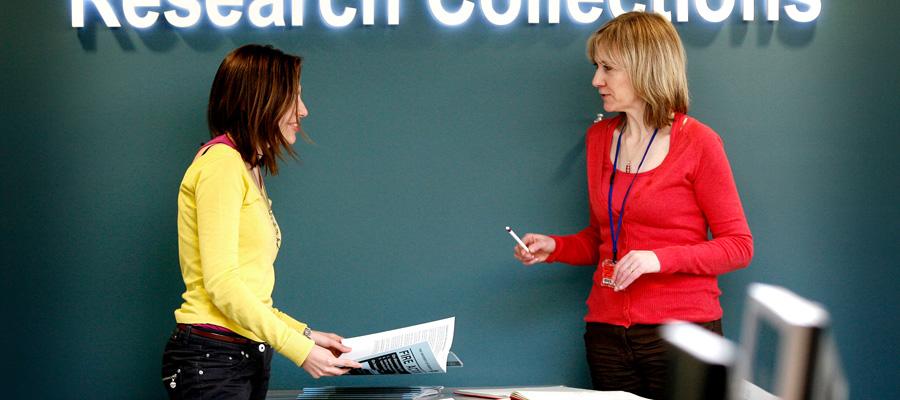
You will have to opportunity to study your chosen topic with the support of an active research community.

Further training opportunities
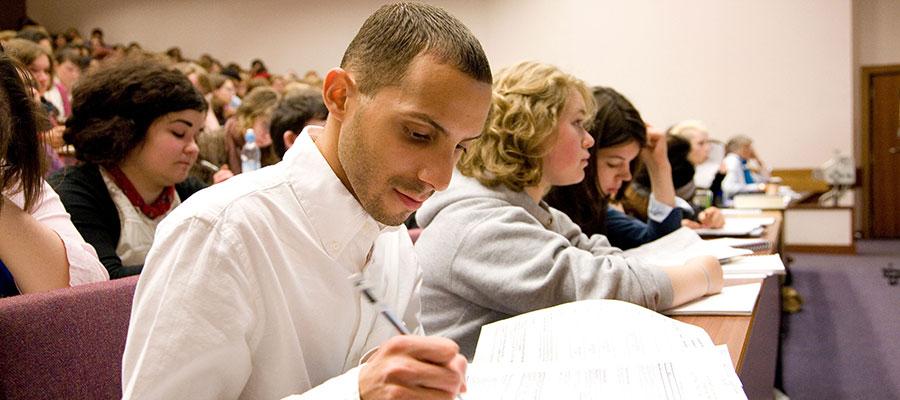
Our programme gives you additional training in the latest research methods.
Fees, funding & expenses

Find out about tuition fees, funding opportunities and living expenses in Edinburgh.
Entry requirements

To be accepted onto the PhD programme you will need a Distinction or near Distinction at masters level in economics or equivalent. If applicable you must be able to meet the minimum English language requirements.
Applying with us

Advice on the steps you should take before applying and the application process, including the required documentation and deadlines.
Meet our PhD students
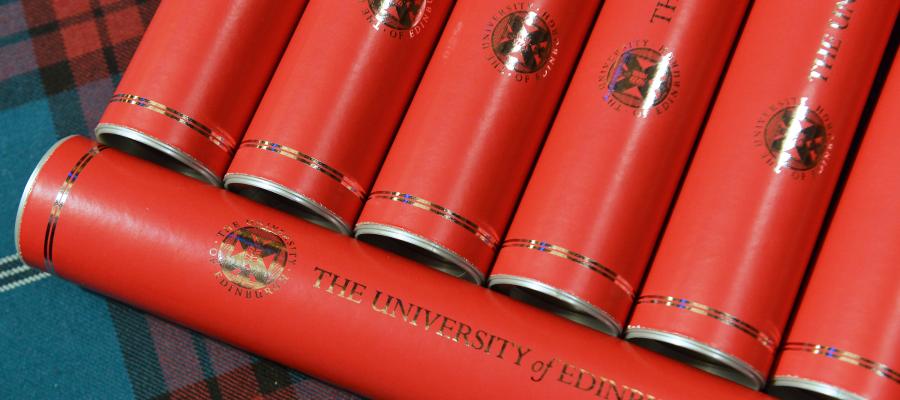
Find out what life's really like as a PhD student in the School of Economics.
This article was published on 2024-10-01

- Schools & departments

Economics PhD with Integrated Study
Awards: PhD with Integrated Study
Study modes: Full-time
Funding opportunities
Programme website: Economics
Postgraduate Virtual Open Days
Join us online on 12 to 14 November where you can learn more about postgraduate study through webinars, live panel sessions, and one-to-one chat.
Find out more and register
Research profile
Our PhD programme enables you to pursue your academic interests, and learn the latest methods in research, while providing you with thorough training in modern economics.
Research rankings
We have an impressive history of high rankings for our research.
In the most recent Research Assessment Exercise, 25% of our research was judged world-leading in its originality, significance and rigour. A further 45% was judged internationally excellent.
Academic staff profiles
There are 34 staff members and around 30 PhD students. Profiles of all our economics staff and students are available on the economics website:
- Staff and students at the School of Economics
Programme structure
Find out more about compulsory and optional courses.
We link to the latest information available. Please note that this may be for a previous academic year and should be considered indicative.
Training and support
Academic support.
You will be supervised by two faculty members from the School, who will provide academic support and advice on the subject area, methodology and structure of your thesis.
What will I study?
The PhD programme is principally a research degree, but modern economics requires substantial training that exceeds the level of an MSc or other masters study.
In Year 1, you will take 120 credits of advanced research-oriented coursework, with the opportunity to take field courses at the frontier of areas relevant to your research.
Review and progression
Subject to passing an annual review at the end of Year 1, you will proceed to three further years of research, with the possibility of taking a fourth “writing-up” year.
As a postgraduate student at the School of Economics you will be immersed in a rich academic environment and supportive community of staff and students.
You with have all the practical facilities to ensure success in your chosen programme of learning or research.
Career opportunities
Employment opportunities.
While many of our PhD graduates choose to remain in academia as lecturers and researchers, some pursue careers in other sectors.
Recent PhD graduates have found employment as researchers and analysts with:
- Behavioural Insights Team
- Danmarks Nationalbank
- Bank of England
- other private and public organisations
Post-doctoral opportunities
Recent graduates have successfully attained post-doctoral positions at:
- University of Oxford
- King's College London
- London School of Economics and Political Science
- European University Institute
As well as faculty positions at:
- Heriot-Watt University
- Penn State University
- University of St Andrews
- Aarhus University
- Heinrich Heine University Düsseldorf
Practical careers support
Our PhD students benefit from the help of our Placement Director in looking for academic jobs.
As well as offering advice and running information sessions, the Placement Director organises practical preparation sessions tailored to the academic job market, such as practice interviews and job talks.
Entry requirements
These entry requirements are for the 2025/26 academic year and requirements for future academic years may differ. Entry requirements for the 2026/27 academic year will be published on 1 Oct 2025.
A UK masters degree with distinction, or its international equivalent, in analytical economics. This degree should be equivalent to that offered by the Scottish Graduate Programme in Economics .
If you do not hold a masters, or if your masters is in another subject, you will not normally be admitted directly to the PhD.
Our programme is designed to enable you to pursue your academic interests, and learn the latest methods in research, while providing thorough training in modern economics. As important as your topic is the ability to match your topic with our supervision team. We will not admit a student, where we cannot provide the very best supervision. Therefore, you should think carefully about whether your topic matches our research interests.
During the application process, you will be asked to provide a research summary that briefly outlines your research interests and why you feel they fit with those of the School.
The criteria we will use to decide upon admission will include:
the quality and rigour of your training in core economics areas.
your performance at undergraduate and postgraduate level
our ability to offer supervision in your chosen area of research
the quality of your research summary and the strength of the match to the research priorities of the School
our assessment of any previous independent work (such as your masters dissertation or extended project)
In exceptional cases, we may consider prior independent research experience as a positive factor for admission.
International qualifications
Check whether your international qualifications meet our general entry requirements:
- Entry requirements by country
- English language requirements
Regardless of your nationality or country of residence, you must demonstrate a level of English language competency which will enable you to succeed in your studies.
English language tests
We accept the following English language qualifications at the grades specified:
- IELTS Academic: total 7.0 with at least 6.5 in reading and listening, and 6.0 in all other components. We do not accept IELTS One Skill Retake to meet our English language requirements.
- TOEFL-iBT (including Home Edition): total 100 with at least 23 in reading and listening, and 20 in speaking and writing. We do not accept TOEFL MyBest Score to meet our English language requirements.
- C1 Advanced ( CAE ) / C2 Proficiency ( CPE ): total 185 with at least 176 in reading and listening, and 169 in speaking and writing.
- Trinity ISE : ISE III with passes in all four components.
- PTE Academic: total 73 with at least 65 in reading and listening, and 59 in each other component. We do not accept PTE Academic Online.
- Oxford ELLT : 8 overall with at least 7 in reading and listening, and 6 in all other components.
Your English language qualification must be no more than three and a half years old from the start date of the programme you are applying to study, unless you are using IELTS , TOEFL, Trinity ISE or PTE , in which case it must be no more than two years old.
Degrees taught and assessed in English
We also accept an undergraduate or postgraduate degree that has been taught and assessed in English in a majority English speaking country, as defined by UK Visas and Immigration:
- UKVI list of majority English speaking countries
We also accept a degree that has been taught and assessed in English from a university on our list of approved universities in non-majority English speaking countries (non-MESC).
- Approved universities in non-MESC
If you are not a national of a majority English speaking country, then your degree must be no more than five years old at the beginning of your programme of study.
Find out more about our language requirements:
Fees and costs
Scholarships and funding.
Funding for postgraduate study is different to undergraduate study, and many students need to combine funding sources to pay for their studies.
Most students use a combination of the following funding to pay their tuition fees and living costs:
- taking out a loan
- family support
- personal savings
- income from work
- employer sponsorship
- scholarships
Explore sources of funding for postgraduate study
Featured funding
We offer funding for high quality applicants, although we would encourage you to try and obtained your own funding sources in the first instance.
- School of Economics scholarships
- University of Edinburgh Scholarship Search
Other funding opportunities
Search for scholarships and funding opportunities:
- Search for funding
Further information
- Postgraduate Administrator
- Phone: +44 (0)131 651 1795
- Contact: [email protected]
- School of Economics
- 30/31 Buccleuch Place
- Central Campus
- Programme: Economics
- School: Economics
- College: Arts, Humanities & Social Sciences
Select your programme and preferred start date to begin your application.
PhD with Integrated Study in Economics - 4 Years (Full-time)
Application deadlines.
We encourage you to apply at least one month prior to entry so that we have enough time to process your application. If you are also applying for funding or will require a visa then we strongly recommend you apply as early as possible.
- How to apply
You must submit two references with your application.
See our supervisors and their areas of research:
- Economics staff
Before applying for a PhD with us, please send us an enquiry email so we can assist you and give you the best advice.
Find out more about the general application process for postgraduate programmes:

- Schools & departments

Postgraduate study
Browse the degree finder.
Browse degrees by subject
A-Z of taught degrees
A-Z of research degrees
A-Z of online degrees
Search the degree finder

Your application
Applying to study at Edinburgh.
Checking your application status
How to apply
After you apply

Entry requirements
Our general entry requirements for postgraduate study.
Academic qualifications
English language entry requirements

Fees and funding
Tuition fees, studying costs and financial support.
Scholarships and loans
Tuition fees
Events and visits
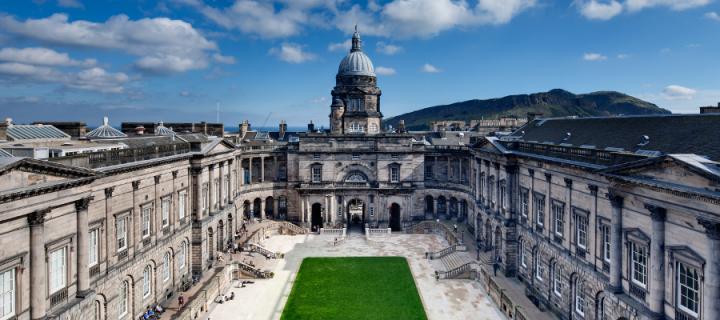
Student-led tours, virtual visit and open days. Join us!
Chat to our students
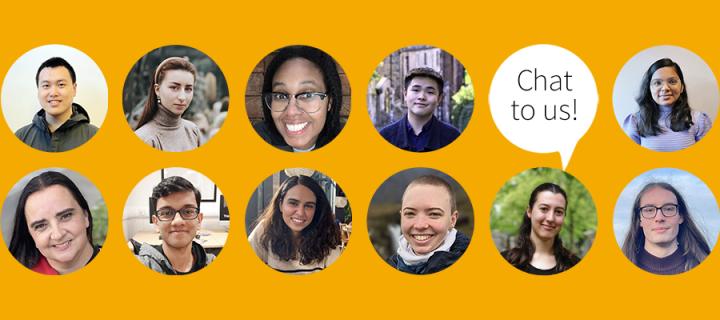
No matter if you're interested in on-campus or online postgraduate programmes, talk to our current students about their experiences.
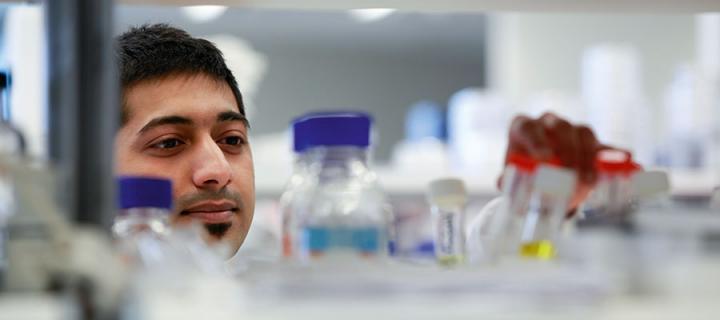
Research degrees
Learn about our different types of research degree, how to find a research supervisor, and where to look for funding opportunities.
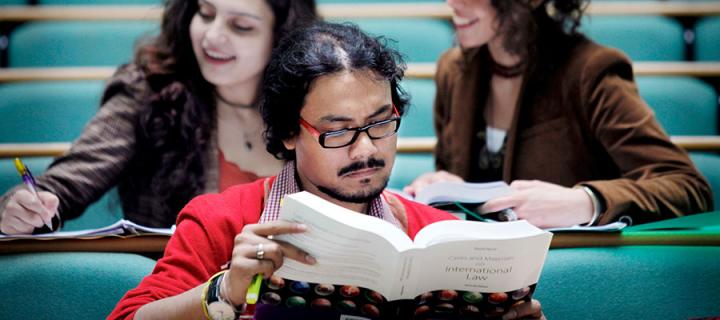
Taught degrees
Our taught degrees enable you to expand your field of knowledge, or acquire expertise in an area that you haven’t studied before.

Online learning
Study anywhere in the world, at times that suit you, for an internationally recognised postgraduate certificate, diploma or masters degree.
Quick links
Join us on Instagram
Follow us on Facebook
Terms and Conditions of Admissions
Request a postgraduate prospectus
Our postgraduate guide offers an introduction and overview to postgraduate study at the University and includes general information on living and studying in Edinburgh.
Student life
Accommodation
Academic support
Advice for ...
International applicants
European Union applicants
Online students
New students
Help improve our services
We pay students to take part in a range of research activities to help us work out how best to improve our services. Register your details if you would like to take part.

IMAGES
COMMENTS
PhDs. Depending on the field of study you are interested in, you may be able to apply for a pre-defined PhD project, or you may need to develop your own research idea. Research in the fields of medicine, science and engineering tend to require you to: apply for a project that already has specific, pre-defined aims.
PhD projects and studentships are defined pieces of research that an organisation wishes to explore. A research council may have provided funding for the project to ensure its successful outcome, although not all defined PhD projects have funding associated with them.
Our PhD programmes provide core training in the research skills necessary to flourish at doctoral level and beyond. PhD by Distance option The PhD by Distance is available to suitably qualified applicants in the same areas as our on-campus programmes.
As a PhD candidate you will have the opportunity to pursue original research and make a significant contribution to your chosen field. Why choose a PhD at the University of Edinburgh Business School? Listen to staff and students at the Business School discuss the doctoral programme
A complete A to Z list of all postgraduate research opportunities at the University of Edinburgh.
You apply for your programme through the University of Edinburgh’s online Degree Finder and its associated application service, EUCLID. To increase your chances of being eligible for a range of scholarships and other awards, you are strongly encouraged to apply for your PhD as early as possible.
Study PhD or MSc by Research in Politics & International Relations at the University of Edinburgh. Our postgraduate degree programme explores the theory, practice and ethics of politics and governance.
PhD Programme. Our programme offers you the opportunity to explore your research topic with first-rate supervision, extensive additional training together with full financial support. Studying with the School gives you the opportunity to become a part of an active research community.
Study PhD in Economics at the University of Edinburgh. Our postgraduate degree programme enables you to pursue your academic interests, and learn the latest methods in research, while providing you with thorough training in modern economics.
Request a postgraduate prospectus. Our postgraduate guide offers an introduction and overview to postgraduate study at the University and includes general information on living and studying in Edinburgh.